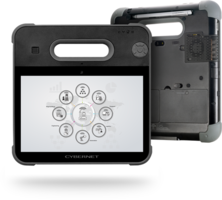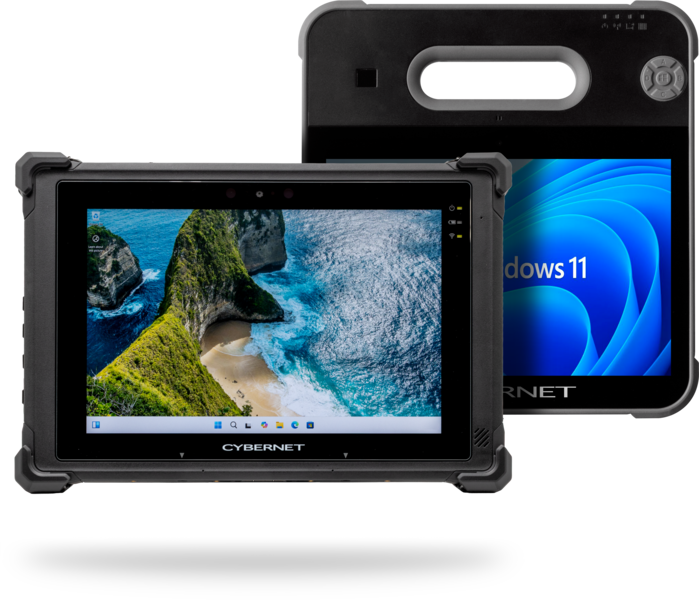The manufacturing sector today faces tremendous challenges. The heart of most industries – their factories – are under pressure to produce more at lower costs while being safe and environmentally friendly. Companies are turning to artificial intelligence to meet these milestones and more.
- What is AI in Factory Automation?
- Uses of AI in Factory Automation
- Benefits of AI in Factory Automation
- Challenges and Concerns with AI in Factory Automation
What is AI in Factory Automation?
Artificial intelligence (AI) are technologies that simulate human thinking: comprehension, learning, problem solving, etc. They run on AI computers, the cloud, or both.
Modern manufacturing aims to build high-quality products consistently, quickly, and at the lowest possible price. Factory automation is a technology that replaces tasks once done by human workers with machines. Pneumatic and hydraulic systems, as well as robotic arms, are some well-known examples of automation.
AI in factories further aims to enhance automation and make it even more accurate and adaptable.
Uses of AI in Factory Automation
AI is tremendously versatile and has found use across diverse sectors from finance to healthcare. In the manufacturing sector, industries use AI to automate many tasks that need extreme accuracy, are repetitive, or unsafe for human workers to name a few.
AI Industrial Robots
Industrial robots are found in many factories, where they’re used in everything from the assembly of cars to the packaging of drugs and pharmaceuticals. AI can expand their capabilities, giving them, for example, the ability to learn new tasks without programming or perform highly complex ones like folding laundered clothing.
AI Computer Vision
Computer vision (also known as machine vision) involves industrial computers visually scanning items made by factory automation. Defect detection, size verification, and object recognition are some of the uses of the technology. AI allows CV to be even more precise in correctly identifying the items and how to handle them.
Predictive Maintenance
Keeping factory machinery in tip-top shape is costly. Companies can expect to shell out between 15 percent to 40 percent of production costs, depending on the industry and the machines involved.
Predictive maintenance has AI monitor a factory’s machines in real time through Internet of Things (IoT) and other Industry 4.0 technologies. It lets workers know when it thinks the machinery could break down, allowing them to schedule repairs, maintenance work, and even replacements before such a failure.
Smart factories
Smart factories, also known as end-to-end automated factories, are manufacturing plants that run themselves. Instead, AI monitors and controls running machinery through IoT, with off-site human workers keeping an eye on the AI through rugged industrial tablets.
Benefits of AI in Factory Automation
Automation, for many manufacturers, means doing more with their factories, doing better, and in less time. AI helps achieve these goals by providing the following benefits.
- AI-enhanced CV can spot product defects and design flaws in real-time, which leads to their removal, resulting in better product quality.
- The data gathered from automation systems gives insight into the factory’s operations, making it easier for human workers to make informed decisions, from production to workloads.
- AI-driven predictive analytics and Industry 4.0 technologies like digital twins can expose costly inefficiencies, allowing staff to address them for increased profitability.
- AI can monitor work settings and even direct cobots (collaborative robots working close to humans) to ensure those human workers are protected from possible work hazards.
Automatically monitor and adjust the factory’s energy use and waste in real time, which the company can reduce to meet sustainable manufacturing goals.
Challenges and Concerns with AI in Factory Automation
The benefits of AI have led many manufacturers to adopt the technology in their factories en masse. However, like all new technologies, there are challenges to be considered. Some of these are:
Data quality
An AI’s performance of its tasks, whether predicting a part’s breakdown to working with humans, is based on its data. Companies will want to ensure that the data fed into the AI computer is accurate. They’ll also want to check that factory settings, sensors, and instruments that send the data are correctly calibrated.
Data integration
Many factory automation systems are directed by their rugged mini PC and are unconnected with each other. This is especially true if running legacy systems. All of them will need to be connected for AI to process their data effectively.
Complexity
AI’s wide-ranging capabilities mean it’s also complex to set up and run. For example, factory owners will have to decide what task(s) will need to be automated, monitored, etc., and run as expected. Technologies supporting AI, like IoT sensors and smart devices, add to that complexity.
Expense
AI in factories is expensive: estimates range from $100,000 to over a million for the AI program alone. Automation, computer vision, and training add to that hefty price tag. Companies will need to calculate ROI and budget accordingly.
Let Cybernet Run the AI in Your Factories
Factory owners across many industries are always looking for ways to run their factories more efficiently. Many are looking at artificial intelligence as a solution, turning to the technology in everything from predicting equipment failure to efficient employee scheduling.
Contact Cybernet Manufacturing if you’re looking at AI to run in your factories. Our team members will happily cover the numerous features that make our AI-enabled industrial PC lineup the right solution for your industrial operations. And as an Original Equipment and Design Manufacturer, we can further customize our products to meet your factories’ exact requirements.


